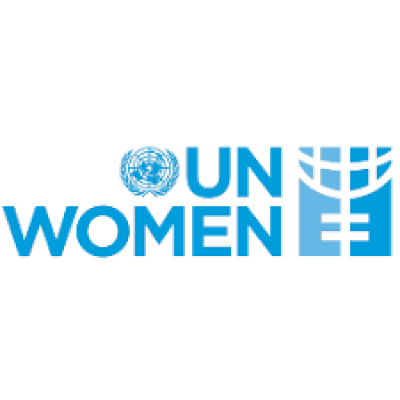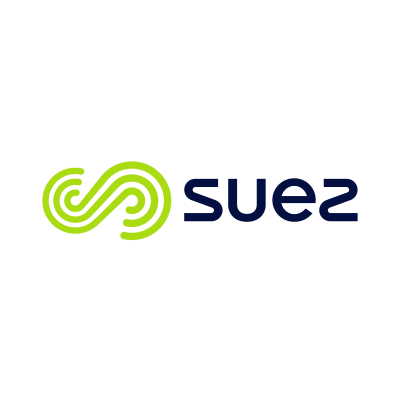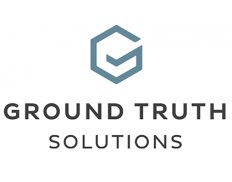Details
Description
Background
UN Women, grounded in the vision of equality enshrined in the Charter of the United Nations, works for the elimination of discrimination against women and girls; the empowerment of women; and the achievement of equality between women and men as partners and beneficiaries of development, human rights, humanitarian action and peace and security. Placing women’s rights at the center of all its efforts, UN Women leads and coordinates United Nations system efforts to ensure that commitments on gender equality and gender mainstreaming translate into action throughout the world. UN Women provides strong and coherent leadership in support of Member States’ priorities and efforts, building effective partnerships with civil society and other relevant actors.
UN Women in Bangladesh supports the government to implement commitments to international normative standards on gender equality and women’s human rights. The new UN Sustainable Development Cooperation Framework (UNSDCF) for 2022-2026 was launched in 2021 and the corresponding UN Women Bangladesh Strategy Note (2022-2026), defining UN Women’s strategic engagement in Bangladesh, has also been finalized. The country strategy focuses on strengthening the national structures and mechanisms for gender mainstreaming in policies, plans and budgets; supporting efforts to prevent and eliminate violence against women; promoting women’s access to decent and safe work; promoting policies and government investment in women’s empowerment and resilience building in the context of climate change, humanitarian crisis as well as other threats to peace and security. UN Women works with a range of stakeholders in Bangladesh including the government, civil society and women’s organizations, youth, UN agencies and donors, to promote gender equality and women’s empowerment.
Currently UN Women together with UNDP (United Nations Development Programme) and UNOPS (United Nations Office for Project Services) is implementing a programme titled “National Resilience Programme (NRP)” to sustain the resilience of human and economic development in Bangladesh through inclusive, gender-responsive disaster management and risk-informed development. One of the key focus of NRP is to strengthen country’s capacity for gender responsive disaster risk reduction policies and practices. Through NRP, UN Women is providing technical support to Department of Women Affairs (DWA) and Ministry of Women and Children Affairs (MoWCA) to mainstreaming gender equality and empowerment of women and girls in the national DRR framework through required policy changes, building leadership of women, state and non-state parties and support developing gender responsive DRR instruments with necessary technical support and knowledge generation. To reinforce current efforts and to demonstrate DWA’s leadership role in mainstreaming gender in DRR, DWA with technical support from UN Women under NRP planned to update DWA’s Disaster Risk Reduction Action Plan developed in 2013.
Rationale:
Despite of having clear guidelines and directives in the National Women Development Policy 2011 on disaster management, DRR issues have not been received proper attention either in DWA’s programme and activities of DWA. A DRR action plan for DWA to build the capacity and resilience of DWA and its beneficiaries to meet the challenges posed by different disasters was developed in 2013 under Comprehensive Disaster Management Programme (CDMP) co implemented by UNDP and Ministry of Disaster Management and Relief (MoDMR). However, the plan has not been executed effectively in setting gender responsive disaster risk reduction (DRR) priorities, targets into programmes and projects of the department.
Meanwhile, significant progress has been made in DRR and gender spectrum at scale both at the national and international level. The Sendai Framework for DRR (SFDRR) 2015 – 2030 has emphasized on women and youth leadership, capacity building, sex and age disaggregated data, and women’s livelihoods. The revised Standing Order on Disaster (SoD) 2019 offers a gender responsive guideline that elaborates on four key principles for mainstreaming gender-equality in disaster risk management initiatives, in addition to detailing out the specific roles and responsibilities of each of ministries and departments of the government for addressing the needs of women, girls, and gender diverse groups. Also, the SoD 2019 emphasizes the leadership role of MoWCA and DWA in risk assessment and risk minimization programmes for women and children in post-disaster situations. The National Plan for Disaster Management (NPDM) 2021-2025 has considered women’s voices and participation in disaster risk management processes as a key strategy. Under this backdrop, it is utmost important to update current DWA DRR Action Plan aligning with latest national and international DRR and gender drivers.
Objectives of the assignment
The overall objective of this assignment is to review current DRR Action Plan of DWA and develop a comprehensive Gender Responsive DRR Strategy and Action Plan 2023-2030 for DWA aligning with SFDRR 2023-2025, NPDM 201-2025 and other national international drivers.
Duties and Responsibilities
Duties and Responsibilities
Under the direct supervision of UN Women Programme Specialist - DRR, CCA, HA, and the guidance from Director of DWA, the international consultant is expected to work closely with a national consultant and a task team to be formed with members from Gender in Humanitarian Action Working Group (GiHA WG). GiHA focal point will provide all secretarial and technical support to the team in consultation with Programme Analyst – DRR, CCA, HA.
Specific tasks:
1. Hold a virtual inception meeting with UN Women and GiHA secretariat to understand the overall purpose and expectations of this assignment.
2. Jointly with a national consultant prepare an inception report which includes work approach and roadmap for formulating the strategy and action plan.
3. Guide the national consultant to develop an analytical framework for reviewing current DWA DRR action plan.
4. Review the action plan and identify the extent to which the provisions give guidance in addressing DRR concerns in the delivery of gender equality and women empowerment agenda within and beyond the institution; and identify provisions that can be used with adaptations.
5. Based on primary review done by national consultant, international consultant will provide technical guide to national consultant in identifying
• Scope within exiting allocation of business of DWA to support and accelerate DRR activities; and how its compliance is linked with DRR commitment stated in the SoD, the NPDM and National Women Development Policy.
• Scope for including gender budgeting while undertaking gender responsive risk reduction measures.
• Mechanism for enhancing knowledge and institutional capacity to integrate DRR concerns into DWA’s programme and project.
• Coordination and technical advisory role of DWA under the leadership of MoDMR in enforcing gender integration in DRR discourse.
6. Review relevant international, regional, and national instruments respectively on gender and DRR and identify principles which should be integrated in the strategy and revised action plan.
7. Support national consultant in conducting consultations with the relevant government representatives (e.g., MoDMR, Department of Disaster Management, Ministry of Women and Children Affairs, Department of Women Affairs etc.), UN agencies (UN Women, UNRCO, UNDP, UNOPS, WFP, UNFPA, UNICEF, UNCDF), and Development Partners (e.g., FCDO, SIDA, EU, ECHO, ROYAL DANISH EMBASSY etc.)
8. Draft a DRR Strategy 2023-2030 aligning with SFDRR timeframe i.e., 2015-2030 along with an action plan to implement the strategy for 2023-2025 aligning with NPDM timeframe i.e., 2021-2025 for DWA.
9. Provide guidance to national consultant addressing feedbacks from different stakeholders on the draft strategy and action plan.
10. Co-facilitate validation workshop on the final DRR strategy and action plan for DWA
11. Finalize DWA DRR Strategy and Action Plan.
Deliverables linked with payment milestone:
Respective deliverables and documents will be reviewed by UN Women before processing payment.
Payment schedule is as followings:
Sl.
Deliverables
No. of days (estimated)
Target dates
Payment
1
Inception report with methodology and roadmap
3 days
By 31st May 2022
75%
2.
Draft DRR Strategy and Action Plan for DWA
14 Days
By 31st October 2022
3.
Final DRR Strategy and Action Plan for DWA
3 Days
By 15th December 2022
25%
Total days
20 days
Supervision and performance evaluation
The International Consultant will work under the direct supervision of UN Women Programme Specialist, DRR, CCA, HA.
Duration: 20 working days over period of 8 months starting from May to December 2022.
DSA and Travel:
No travel required; hence no DSA is applicable under this assignment.
Competencies
Core Competencies:
• Demonstrates integrity by modeling the UN’s values and ethical standards;
• Promotes the vision, mission, and strategic goals of UN Women;
• Displays cultural, gender, religion, race, nationality and age sensitivity and adaptability;
• Treats all people fairly without favoritism;
• Fulfills all obligations to gender sensitivity and zero tolerance for sexual harassment.
Please visit this link for more information on UN Women’s Core Values and Competencies: http://www.unwomen.org/-/media/headquarters/attachments/sections/about%20us/employment/un-women-employment-values-and-competencies-definitions-en.pdf
Required Skills and Experience
Education:
Advanced university degree (At least Master’s) in Disaster Risk Management, Gender/Women Studies, Development Studies, Sociology, Anthropology, or other relevant disciplines. PhD in relevant field will be an asset
Experiences:
At least 8 years of proven experiences in developing national/regional gender equality strategy, policy, for effective gender mainstreaming in DRR and Resilience building.
Proven working experience with governments and national partners in formulating national gender responsive DRR plan.
Familiarity with gender and DRR policy context in Asian countries specifically in Bangladesh.
Demonstrated track record of leading or supporting gender inclusive DRR programme.
Good understanding, knowledge and working experience with UN Coordination Mechanisms e.g., HCTT Cluster mechanism.
Additional Capacity
Demonstrable track record working with multi-stakeholders, including governments, donors, academia, and civil society organizations in DRR and Gender Equality.
Evidence of having undertaken similar assignments
Ability to develop high quality reports in English
Language
Excellent communications, analytical and writing skills in English.




